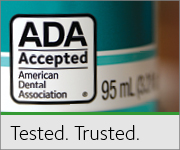
Anticoagulant Antiplatelet and Dental Procedures – in accordance to ADA
Overview
Patients with a history of heart attack or stroke may take anticoagulant medications like warfarin (Coumadin), clopidogril (Plavix), ticlopidine (Ticlid) or aspirin. These medications are used to prevent formation of blood clots that could lead to another thromboembolic event, heart attack or stroke.
Because these are anticoagulant medications, bleeding time after dental treatments, for example, may be prolonged. In light of this, some dentists might be tempted to recommending that the patient reduce his or her dosage or stop taking the medications entirely before receiving dental care. However, it is generally agreed that anticoagulant drug regimens should not be altered before dental treatment.1-3 A systematic review and meta analysis found no increased risk of bleeding associated with continuing regular doses of an anticoagulant in comparison with discontinuing or modifying the dose for patients undergoing single and multiple tooth extraction.4 The American Academy of Neurology recommends that patients undergoing dental procedures continue taking aspirin or warfarin for stroke prevention.5
Without the anticoagulant medications, these patients are at higher risk for blood clot development, which could result in thromboembolism, stroke or heart attack. The risks of stopping or reducing this medication regimen far outweigh the consequences of prolonged bleeding, which can be controlled with local measures.
Some patients who are taking one of these or multiple anticoagulant medications have additional medical problems that increase the risk of prolonged bleeding after dental treatment.1 Before treating these patients, you may wish to consult his or her physician to determine whether care can safely be delivered in a primary care office. These medical conditions include:
-liver impairment or alcoholism
-kidney failure
-thrombocytopenia, hemophilia, or other hematological disorders
-those currently receiving a course of cytotoxic medication.
Patients with Coronary Artery Stents
Your patient may be taking antiplatelet medications following a coronary artery stent procedure. A coronary stent is a wire mesh tube that is implanted permanently into a blocked artery to restore blood flow to the heart. Patients can receive either a drug-coated stent or a plain metal stent. As with any medical procedure, both uncoated and drug-coated stents are associated with risks. One rare but serious risk for both types of stents is the formation of a blood clot inside the stent, also known as stent thrombosis. Stent thrombosis can potentially lead to a heart attack or even death in some cases. Fortunately, the rates of stent thrombosis are low.
To reduce the risk of stent thrombosis post-stent implantation, patients are prescribed dual antiplatelet therapy. Most commonly, patients are prescribed aspirin and a second drug- clopidogrel (also known as Plavix) or ticlopidine (also known as Ticlid). Patients usually take aspirin for life, and clopidogrel or ticlopidine for several months or even years.
In February 2007, the American Heart Association, the American College of Cardiology, the Society for Cardiovascular Angiography and Interventions, the American College of Surgeons, and the American Dental Association published their consensus opinion about drug-eluting stents and antiplatelet therapy.3 The advisory document states that healthcare providers who perform invasive or surgical procedures (i.e. dentists) and are concerned about periprocedural and postprocedural bleeding should contact the patient’s cardiologist regarding the patient’s antiplatelet regimen and discuss optimal patient management, before discontinuing the antiplatelet medications. Given the importance of antiplatelet medications post-stent implantation in minimizing the risk of stent thrombosis, the medications should not be discontinued prematurely.
References
- 1. United Kingdom National Health Service. Surgical management of the primary care dental patient on antiplatelet medication. National Electronic Library of Medicines. Accessed October 9, 2013.
- Douketis JD, Berger PB, Dunn AS, et al. The perioperative management of antithrombotic therapy: American College of Chest Physicians evidence-based clinical practice guidelines (8th Edition). Chest 2008;133(6, Supplement):299S-339S. Accessed October 9, 2013.
- Grines CL, Bonow RO, Casey DE, et al. Prevention of Premature Discontinuation of Dual Antiplatelet Therapy in Patients with Coronary Artery Stents. Circulation 2007;115:813-8. Accessed October 9, 2013.
- Nematullah A, Alabousi A, Blanas N, Douketis JD, Sutherland SE. Dental surgery for patients on anticoagulant therapy with warfarin: a systematic review and meta-analysis. J Can Dent Assoc 2009;75(1):41-41i. Accessed October 9, 2013.
- Armstrong MJ, Gronseth G, Anderson DC, et al. Summary of evidence-based guideline: Periprocedural management of antithrombotic medications in patients with ischemic cerebrovascular disease. Report of the Guideline Development Subcommittee of the American Academy of Neurology. Neurology 2013;80:2065-9. Accessed October 9, 2013.
Additional Resources
- Medications, Effects on Oral Health
- Practice Management: ADA/PDR Dental Therapeutics http://catalog.ada.org/
- Search JADA for articles related to anticoagulant or antiplatelet medications
- ADA Library Services

Leave a reply